Reviews
Our Daily Bread
F.W. Murnau
USA, 1930
Credits
Review by Leo Goldsmith
Posted on 03 March 2009
Source Fox DVD
Categories The Silence After Sound: Hollywood’s Last Silent Movies
City Girl was the last straw for F.W. Murnau. After three years in America, box-office disappointments of Sunrise and Four Devils, creative wrangles with Fox, editorial compromises, and a botched release-cut of his new film (with sound added), the director found Hollywood too much to tolerate. And so, he sailed his yacht to Tahiti to make, with Robert Flaherty, the documentary Tabu, his last film. But even before the director had quite reached this limit, City Girl itself - or the reconstruction of Murnau’s original cut that survives to us - is already a film about liberation and escape—from oppression, from indignity, and even from one’s own dreams, if they prove foolish enough.
Like Sunrise, which it directly references and responds to, Murnau’s last silent film establishes a dialogue between America’s urban and rural spaces, commenting upon and realigning the idealism that each sustains. No doubt part of the appeal of the director’s earlier classic is its way of typifying each of these spaces: the city is a site of metropolitan marvels and clockwork efficiency, but also self-interest and ephemeral temptations; the country a place of family and honest living that stabilizes the nation’s moral foundation. This myth of the dual nature of American life still obtains today, so it’s no wonder that Sunrise, rather than City Girl, is the Hollywood film for which Murnau is remembered. But the later film, in direct response to its predecessor, calls this binary simplicity into question, offering a much more complex, fluid portrait of the Land of Opportunity.
In the opening shot, we are already moving. Aboard an eastbound train, coursing across fields of grain, Lem Tustine is on his way to the city (presumably Chicago) to get a good price for his father’s wheat crop. From the outset, when Lem promptly ignores a dolled-up city vamp who gives him the come-hither from across the aisle and opts instead to attend to the sandwich his mother has packed for him, Sunrise’s foregone conclusions about city and country are upended. The corruptions of the city will not so easily win over even one so green as Lem, the mama’s boy. But then, nor does the clean and simple life of the country prevent one from being spiteful and vindictive: Lem’s Pa seems to have inherited nothing but cynicism from his rural life, his fear of poverty making him as petty as any self-interested city-slicker.
Similarly, when we finally encounter Kate, the titular city girl, it is difficult to know quite what to make of her intentions. For one, we have the warning of the vamp aboard Lem’s train in the first scene, but it doesn’t help that Kate bears a “666” written in kiss-curls on hear forehead. Murnau resists cueing the audience with any obvious hints about her character and motivation, and instead we get a portrait of a woman who simply feels bored and oppressed. An elevated train line runs right past the window of her spare studio apartment, where she waters a tiny shriveled plant and plays with a chintzy, mechanical caged bird that we come to identify with her. Her one solace is a billboard across the street promising “Vacation on Minnetonka Shores,” which she gazes at wistfully between visitations from passing trains.
Notwithstanding the elaborate studio set-ups of the first act’s cityscapes, City Girl’s narration is less dependent on the sort of calculated mise-en-scene and elaborate camera-movement of Sunrise than it is on montage. Rather than weave through spaces, Murnau here prefers to cut between them, as in the witty dissolve from mother’s home-baked bread, served hot from the oven and sliced on the Tustine family table, to the automatic bread-slicer at Johnson’s Place, the bustling hash-counter where Kate waitresses. This creates a complex dialogue between city and country—our daily bread is a common right in both locations, even if the means by which we slice it are distinct or even jarring. Even the billboard for the Minnetonka Shores suggests a continuity in the American Dream, promising romance as much as spacious skies and fruited plains.
For his part, though Lem Tustine is less interested in the city for its own sake than for its opportunity to do well by his Pa, his meeting with Kate at the hash-counter inspires romantic dreams of his own. With a very efficient exchange of glances and gestures (and, in Kate’s case, even the odd swoon), Murnau soon establishes that these characters are in love, and it’s not long before the narrative realizes Kate’s dreams of country-living, sending her westward to the Tustine farm. But this euphoric transition from dense, urban clutter to beautiful wheat field nothingness in some ways marks the end of the dream—it’s a last image of the country’s purity of possibility before the fantasy of urban travel advertising dissipates and the reality of rural labor inevitably sets in. (Later in the film, and foreshadowing his work with Flaherty, Murnau even shows a kind of documentary interest in contemporary mechanics of wheat harvesting. These scenes yoke City Girl to Malick’s Days of Heaven, which is something of a looking-glass inversion of the earlier film’s second half.) Pa, not unpredictably, is less trustful and welcoming of Kate than is Lem, and the father and daughter-in-law begin a war of wills, a kind of bizarre love-triangle with the dutiful Lem in the middle.
Of course, there are other complications, especially when the harvest draws a band of surly, carousing laborers to the farm. It’s not long before one of these takes a shine to Kate, offering her yet another escape (from the strictures of farm life) and entrapping her in what Pa believes is an act of typical city-girl infidelity. Here, again Murnau’s film shows that there is as much continuity between city and country as there is difference: even among amber waves of grain, Kate is still trying to avoid static from the people in charge while slinging hash for men that leer at her while. “I used to think the country was clean… that men out here were decent,” she tells one of them. “But you’re all alike… cheap sports! You all talk big when you want something!”
Men only want one thing—the truism of many a paranoid father here becomes a kind of apology for the eros and ambition of the American Dream. For Kate, this has become a nightmare: this is Lem’s weakness, too, and it’s unclear if he has the faith and manhood to follow through on his own promise. “You’re on the wrong road,” he finally tells her as she tries to flee the farm in the middle of the night. “There’s only more farms like ours that way.” And more disappointment as well, Murnau would seem to want to tell us, if not for the imperative of the Hollywood ending. Kate and Lem make their way back to the farm, and father and daughter-in-law resolve their differences, but it’s more of a caesura than a full stop. Even in the middle of the night, there’s much work to be done: the harvest is still in progress, Pa’s financial quandaries remain unresolved, and the object of the characters’ dreams is still in motion.
More The Silence After Sound: Hollywood’s Last Silent Movies
-
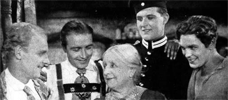
Four Sons
1928 -
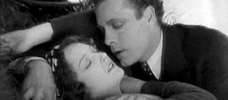
The Crowd
1928 -

A Girl in Every Port
1928 -
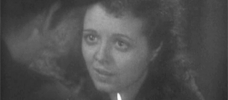
Street Angel
1928 -

The Patsy
1928 -
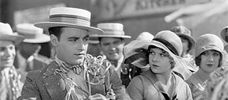
Lonesome
1928 -

Our Dancing Daughters
1928 -

Beggars of Life
1928 -
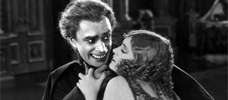
The Man Who Laughs
1928 -

The Docks of New York
1928 -
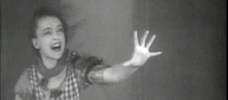
The Wind
1928 -
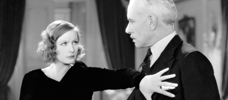
A Woman of Affairs
1928 -
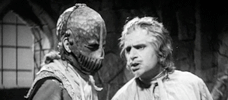
Iron Mask
1929 -
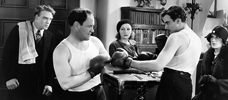
The Single Standard
1929 -

City Girl
1930 -

The Wedding March
1928
We don’t do comments anymore, but you may contact us here or find us on Twitter or Facebook.



